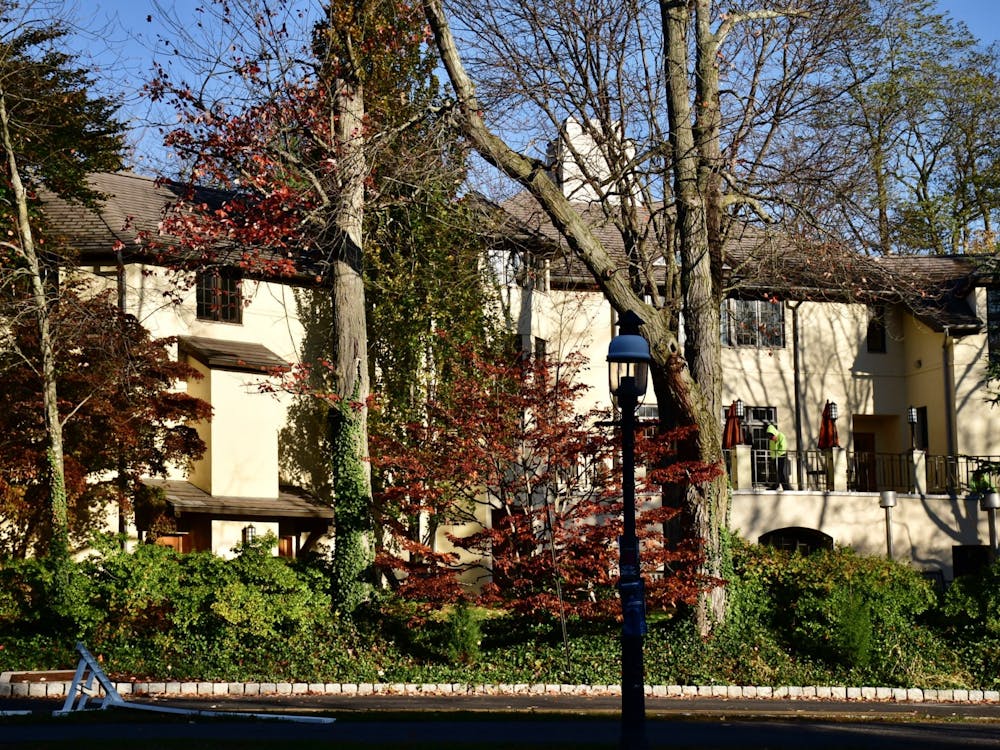By Paul Chin ’06
Last spring, I skipped Reunions and attended a different kind of celebration. I had been looking forward to it for a while —six years to be exact. It was the day the first group of students I had ever taught would walk the stage for their high school graduation. As I watched them snap selfies and snag congratulatory embraces, my thoughts turned to Princeton. These kids were off to do great things; many would be the first college freshmen in their families. I had met them as middle schoolers at a charter school in south central Los Angeles. Now, some were headed to colleges like Johns Hopkins and UCLA. As I marveled at what they had accomplished, I wondered what more we Tigers could do to make moments like this possible for more low-income students in this country.
Nine years ago, I began my career as an educator. With a handful of other Princeton classmates, I joined Teach For America. I wrote my JP and senior thesis on the types of challenges schools face and how certain schools are approaching these challenges differently compared to traditional public schools. I was intent on translating the theories I had studied into practice. My parents, members of the Class of 1975, were supportive, but they had both been trained as attorneys and there was never a shortage of suggestions regarding law school as a career path instead. That all changed when they came to visit me and my students in LA. They spent the day with us and saw the impact I was having firsthand. Since then, they have asked me about law school exactly zero times. Instead, they have talked me through countless tough moments, come to speak to my students across three states and have become the fiercest pair of advocates for the value of my work and the potential of my kids that a teacher could hope for.
All of which brings me back to my central question: can we as Princetonians do anything more to ensure that all students in this country have the opportunity to receive a quality education and attend a university like Princeton? I believe that we can. We need more outstanding educators on the front lines of our neediest schools. Currently, there are far too few Tigers in our ranks. Imagine the impact an elite team of Princeton graduates could have on our schools across the nation.
The good news is that the University is already making an effort. This fall, the administration announced several initiatives designed to increase the presence of low-income students on campus, such as expanding the Freshman Scholars Institute, a program that supports incoming freshmen who may be the first in their families to go to college or who have come from schools that did not offer advanced placement courses. Princeton is also improving initiatives to identify and recruit first-generation students in general. This is essential, invaluable work: not enough low-income students even see Princeton as an option. However, such efforts address only a tiny piece of the problem.
Currently, our public education system prepares a shamefully small sliver of students from communities like the ones I’ve worked in —south central Los Angeles, Newark, and Eastside Indianapolis —for the rigors of a college like ours.As Princetonians, we can be a part of changing this. However, this requires an unpopular and financially difficult career choice. An Ivy League education can open doors on Wall Street, and there is a certain prestige associated with moving on from a place like Princeton to a top-tier law school or business school. Far less prestige is associated with a career in education. Nevertheless, this is the field that most directly determines our nation’s future. Some countries recognize this. Finland and South Korea consistently outperform the United States on international exams. In these countries, educators are revered and their students excel. Attitudes are different in this country.
Teaching is not for everyone. For those who are interested in teaching but are not quite certain that they are ready to take the leap, two-year programs like Teach for America offer exclusive scholarships and benefits, partnering with top employers like Google Inc. and JP Morgan Chase and graduate schools like Harvard Law School and Johns Hopkins. I honestly wasn’t sure it was for me; then, I met my kids. Nearly a decade later, as I prepare to become a principal, I know I made the right choice for myself, and I am writing this piece now to encourage more Princetonians to give teaching a chance and work to open the doors of institutions like ours to kids who might otherwise never consider it. When I advise my students about college, I want to be able to tell stories of students like them who have attended Princeton and excelled. I want to be able to tell them just how much Princeton has done, and is doing, to make all that possible.
Paul Chin ’06 is an Instructional Leadership Fellow at Uncommon Schools and a 2006 alum of Teach For America. He majored in Sociology and is currently training to become a principal in New York City next fall.







